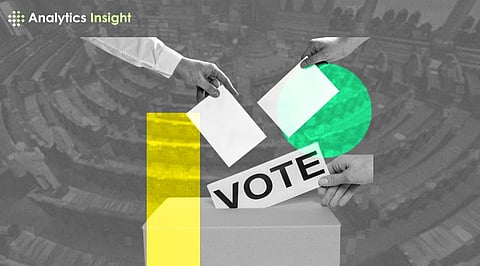
- Insights
- Cryptocurrencies
- Stocks
- White Papers
- Industry
- Geography
- Insights
- Cryptocurrencies
- Stocks
- White Papers
- Industry
- Geography


The 2024 Lok Sabha elections in India are set to be a watershed moment in the history of electoral politics, largely due to the transformative impact of Artificial Intelligence (AI). As political parties and candidates gear up for the upcoming polls, AI is poised to play a pivotal role in shaping campaign strategies, voter engagement, and ultimately, the election outcomes.
Political parties are increasingly turning to AI for a heads up in competitive edge. The Bharatiya Janata Party (BJP), for instance, has been at the forefront of adopting AI for political campaigning. The party has utilized AI to translate Prime Minister Narendra Modi's speeches into multiple regional languages, thereby broadening his appeal across diverse linguistic demographics. This strategy not only enhances communication with voters but also reflects a nuanced understanding of India's cultural mosaic.
AI's ability to analyze vast datasets enables political parties to micro-target voters with personalized content. By leveraging data on population demographics, social media interactions, and online behaviors, campaigns can tailor their messages to resonate with individual voters' preferences and concerns. This level of customization was previously unattainable with traditional campaigning methods.
However, the employment of artificial intelligence in elections is not without its obstacles.
The technology's potential to spread both accurate and misleading information raises concerns about the integrity of the electoral process. Misinformation campaigns, powered by AI, can manipulate voter perceptions, and undermine the democratic principles of transparency and fairness.
The proliferation of AI-generated content, including deepfakes and simulated audio, has sparked debates on ethics and the potential for misuse. In the context of the Lok Sabha elections, such content can be used to create false narratives or discredit political opponents. The ease with which AI tools can generate convincing fake content necessitates a vigilant approach from both the public and regulatory bodies.
The need for robust regulatory frameworks to govern the use of AI in elections is becoming increasingly apparent. While the Election Commission of India (ECI) monitors official social media accounts and ad spending, there is a gap in addressing the actions of IT cells and social media operatives of political parties. Establishing clear guidelines and ethical standards for AI use in political campaigns is crucial to safeguarding the democratic process.
On a positive note, AI can also contribute to voter education and engagement. Interactive AI chatbots, informative platforms, and educational tools can help voters make informed decisions. AI can facilitate a more informed electorate by providing easy access to information about candidates, party manifestos, and key election issues.
As India approaches the 2024 Lok Sabha elections, the impact of AI on the political landscape is undeniable. While AI offers unprecedented opportunities for political engagement and voter outreach, it also presents significant risks that must be addressed. The challenge for India will be to harness the benefits of AI while implementing measures to prevent its misuse. Ensuring that AI serves to strengthen, rather than undermine, democracy will be a critical task for all stakeholders involved in the electoral process.
